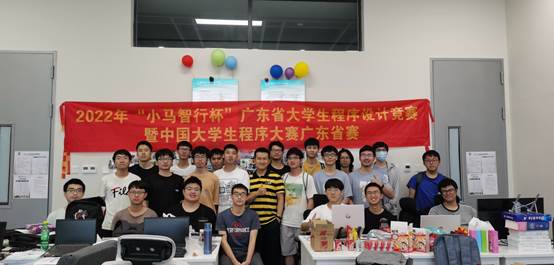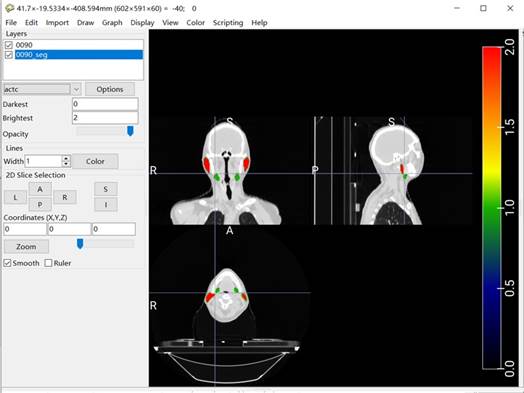SZTU students have recently achieved fruitful results in 2022 Guangdong Collegiate Programming Contest (GDCPC) and Guangdong Biomedical Engineering Innovation Design Competition.
On June 5, the 19th Guangdong Collegiate Programming Contest was rounded off. The Association for Computing Machinery (ACM) training team from Shenzhen Technology University (SZTU) claimed four prizes after competing with 158 teams from 36 universities and colleges in Guangdong Province. The students from the ACM training team formed four groups, two of which won silver awards and the other two won bronze awards. As a result, SZTU ranked among the top 10 institutions in Guangdong Province in terms of the number of such awards. The silver award winners from SZTU included Liu Zechi, Zhou Jiabao and Qian Guining in Group 1, and Wu Yuheng, Zhang Ruitian and Xu Jiahui in Group 2. The bronze awards were shared by Lin Zeyang, Lin Chengzhao and Ou Weikai in Group 3, and Wu Taiwei, Zeng Xirou and Chen Jincong in Group 4.

The ACM training team members of SZTU [Photo/College of Big Data and Internet]
Initiated by ACM and launched in 1970, the International Collegiate Programming Contest (ICPC) is one of the oldest and largest high-level collegiate programming contests in the world. GDCPC aims to raise students’ interest and skills in programming and promote the teaching reform of computer courses in higher education by introducing such an influential competition into the universities and colleges in Guangdong. GDCPC has become a sub-competition of China Collegiate Programming Contest (CCPC) since 2019.
Organized by the College of Big Data and Internet in 2021, the ACM training team of SZTU achieved a bronze award in the Asian divisional competition of the 46th ICPC in 2021 and 7 national prizes in the Group Programming Ladder Tournament in 2022.
Recently, the winners list of the first Guangdong Biomedical Engineering Innovation Design Competition for College Students was announced. A project “Segmentation of Critical Organs in Head and Neck CT Images” by a student team from SZTU won the third prize. The team was formed by three junior students and their instructor Lyu Mengye from the College of Health Science and Environmental Engineering. Aiming to tackle the problems in radiation therapy for nasopharyngeal carcinoma by applying deep learning, the team developed an AI model with the dataset they collected, which finally realized the automatic segmentation of two critical organs in the CT images of patients, namely the parotid gland and the submandibular gland.

The CT Image Segmentation [Photo/College of Health Science and Environmental Engineering]

The award-winning team members: Yang Huaishui (left), Zhong Tianzhao (middle) and Lu Yini (right) [Photo/College of Health Science and Environmental Engineering]
Launched in 2022, the competition was initiated by the steering committee of Guangdong Province on biomedical engineering education in higher education institutions, sponsored by Guangdong Society of Biomedical Engineering, and organized by Southern Medical University. Open to universities and colleges in Guangdong, it aims to further the disciplinary development of biomedical engineering, accelerate the specialty construction in this field and cultivate high-level professional talents.
Drafted by Olivia(赖丽伟)/ International Cooperation & Student Affairs Office
Revised by International Cooperation & Student Affairs Office
Edited by International Cooperation & Student Affairs Office
